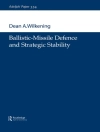Winner, 2023 OHA Book Award, Oral History Association
A young woman flees violence in Mexico and seeks protection in the United States—only to be trafficked as a domestic worker in the Bronx. A decorated immigration judge leaves his post when the policies he proudly upheld capsize in the wake of political turmoil. A Gambian translator who was granted asylum herself talks with other African women about how immigration officers expect victims of torture to behave. A border patrol officer begins to question the training that instructs him to treat the children he finds in the Arizona desert like criminals.
Through these and other powerful firsthand accounts, A Story to Save Your Life offers new insight into the harrowing realities of seeking protection in the United States. Sarah C. Bishop argues that cultural differences in communication shape every stage of the asylum process, playing a major but unexamined role. Migrants fleeing persecution must reconstruct the details of their lives so governmental authorities can determine whether their experiences justify protection. However, Bishop shows, many factors influence whether an applicant is perceived as credible, from the effects of trauma on the ability to recount an experience chronologically to culturally rooted nonverbal behaviors and displays of emotion. For asylum seekers, harnessing the power of autobiographical storytelling can mean the difference between life and death. A Story to Save Your Life emphasizes how memory, communication, and culture intertwine in migrants’ search for safety.
Table of Content
Acknowledgments
Note on the Cover Art
1. Halted Expectations
In Their Own Words: Josh Childress, Former U.S. Customs and Border Protection Agent
2. Long Stories Short
In Their Own Words: Alina Das, Immigration Attorney
3. Emotional Labor
In Their Own Words: Ethan Taubes, Asylum Officer Trainer
4. Nonverbal Communication and Credibility
In Their Own Words: Dr. Renée Sicalides, Psychologist
5. Deterring Asylum
In Their Own Words: Jeffery Chase, Former Immigration Judge
6. The Return
In Their Own Words: Rafael, Detained Asylum Seeker
Postscript
Appendix: Methods and Trauma-Informed Research Design
Notes
Bibliography
Index
About the author
Sarah C. Bishop is an associate professor in the Department of Communication Studies at Baruch College, City University of New York. She is on the board of directors of Mixteca Organization, a nonprofit that supports immigrant communities in Brooklyn, and she serves as an expert witness in U.S. asylum hearings. She is the author of
Undocumented Storytellers: Narrating the Immigrant Rights Movement (2019) and
U.S. Media and Migration: Refugee Oral Histories (2016).












